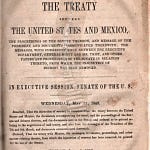Sam Bankman-Fried, the founder of FTX, has been charged with foreign bribery by federal prosecutors in Manhattan, adding to the 13 criminal counts he is already facing, including securities fraud, money laundering, and campaign finance violations. The charge stems from an alleged $40m bribe that Mr. Bankman-Fried instructed his employees to pay to Chinese officials in 2021 to unfreeze accounts held by FTX's sister company, Alameda Research. The accounts held roughly $1bn in cryptocurrency. The payment was allegedly made in cryptocurrency and was successful in getting the accounts unfrozen. The charge was brought under the Foreign Corrupt Business Practices Act. Mr. Bankman-Fried was released on bail, but he is confined to his parents' home in Palo Alto, California. Three former executives who worked closely with Mr. Bankman-Fried have already pleaded guilty and are cooperating with the authorities.
Sam Bankman-Fried Is Charged With Foreign Bribery
The US federal judiciary has introduced tighter financial disclosure guidelines for Supreme Court justices and other judges relating to gifts, meals and personal hospitality paid for by others. The changes, which took effect on 14 March, were outlined by the Judicial Conference and aim to clarify regulations around financial reporting exemptions. The exemption now only applies to gifts of a personal nature such as meals, entertainment or lodging, and not to travel or gifts received at properties or facilities owned by businesses. The rules also require justices and federal judges to disqualify themselves where impartiality could be questioned, including conflicts of interest related to financial holdings. Senator Sheldon Whitehouse has welcomed the new regulations and called for more transparency around the personal ties of justices.
New Gift Disclosure Rules Extend to Supreme Court Justices (1)
US Supreme Court justices get tougher rules for reporting free trips, gifts | Reuters
Adnan Syed, the subject of the 2014 podcast "Serial," had his conviction reinstated after the brother of murder victim Hae Min Lee won an appeal vacating a Baltimore court's decision to release him from prison. Syed has maintained his innocence since his 2000 conviction for the murder of Lee, his ex-girlfriend, and Maryland prosecutors vacated his convictions and life sentence in 2019 after an investigation found undisclosed evidence in support of alternate suspects. However, Lee's brother appealed after the circuit court vacated the convictions, alleging that the state violated his right to attend the hearing by giving him only a day's notice. The decision vacated the circuit court's decision, thereby reinstating Syed's original convictions and sentence pending a new hearing. Syed's counsel has pledged to take the case to the state's highest court, the Supreme Court of Maryland.
‘Serial’ Subject Adnan Syed’s Convictions Reinstated (2)
The New Jersey State Bar Association, along with the deans of Rutgers and Seton Hall law schools, are calling on the judiciary to remove question 12B from the character and fitness application for bar admission. The question requires applicants to disclose any mental health issues they have and the treatment they receive. Those who seek to change the rule claim that the disclosure requirement prevents law students with mental health issues from seeking help. A survey of mental health among 1,537 New Jersey attorneys found that 10% of respondents reported suicidal ideations, a rate three times higher than other working populations. New Jersey State Bar Association President Jeralyn Lawrence has directed her request to Chief Justice Stuart Rabner, saying that 26 other states have either eliminated, substantially modified, or never used mental health status questions on their bar applications. Rutgers Law School said that it has seen a "marked increase" in the incidence of students reporting to school with mental health concerns. Seton Hall Law added that research showed that "mental health and treatment questions are unrelated to the competent practice of law."
Judiciary Urged to Eliminate Mental Health Question From Bar Application | New Jersey Law Journal












